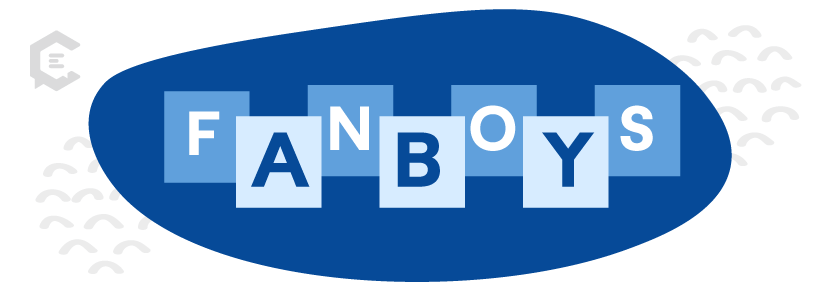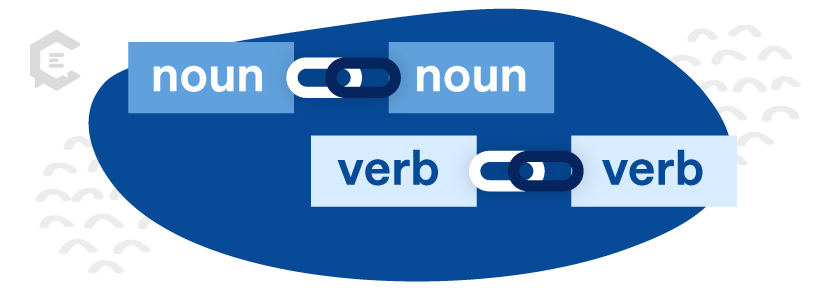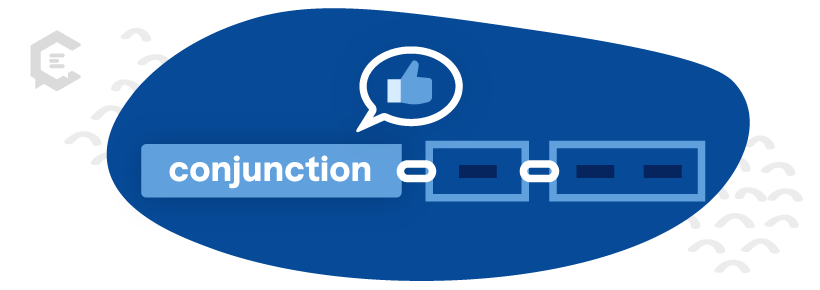Did you watch ‘Schoolhouse Rock’ as a kid? It had classic episodes like “Three Is a Magic Number” (about multiplying by three), “I’m Just a Bill” (about how a bill becomes a law), and our personal favorite, “Conjunction Junction,” which is all about the star of this article: coordinating conjunctions, otherwise known as FANBOYS.
FANBOYS is a mnemonic device to help you remember the seven coordinating conjunctions:
- For
- And
- Nor
- But
- Or
- Yet
- So
What Are Coordinating Conjunctions?
Coordinating conjunctions are used to join multiple grammatical elements of equal importance. These elements could be nouns, verbs, adjectives, adverbs, or even whole phrases and independent clauses. We all use coordinating conjunctions every day. But are you using them correctly?
Let’s look at:
- How to use FANBOYS as coordinating conjunctions — including lots of examples
- How coordinating conjunctions are different from subordinating conjunctions
- Whether it’s proper to start a sentence with a coordinating conjunction
- And why “however” isn’t included in FANBOYS
Here’s everything you need to know about FANBOYS.
How To Use FANBOYS As Coordinating Conjunctions
You can use FANBOYS to join multiple…
- nouns (persons, places, or things)
- verbs (actions or states of being)
- adjectives and adverbs (descriptions)
- whole phrases
- independent clauses (complete sentences)
Let’s look at a few examples.
Example of using FANBOYS with nouns
Micheal and Nina are working together on that assignment.
The nouns (Micheal and Nina) are joined by one of our FANBOYS: and.
Example of using FANBOYS with verbs
Should we walk, drive, or Uber?
The verbs (walk, drive, and Uber) are joined by or.
Example of using FANBOYS with adjectives
That article was neither well-written nor informative.
The adjectives (well-written and informative) are joined by nor.
Example of using FANBOYS with phrases
The project was difficult yet worth the effort.
The phrases (The project was difficult and worth the effort) are joined by yet.
Example of using FANBOYS with independent clauses
I thought I knew a lot about the topic, but I learned a lot more.
The independent clauses (I thought I knew a lot about the topic and I learned a lot more) are joined by but. This could be written as two separate sentences: I thought I knew a lot about the topic. I learned a lot more.
However, using a conjunction combines the sentence into a single thought and improves the flow of the writing. When using FANBOYS to join two independent clauses, you need a comma before the conjunction.
The Difference Between Coordinating and Subordinating Conjunctions
FANBOYS are most often used as coordinating junctions to join grammatical elements, as we’ve seen so far. But they can also be used as subordinating conjunctions. In subordinating conjunctions, the grammatical elements are not equal; one is dependent on the other.
Example of subordinating conjunctions
I started blogging so I could get more customers.
In this example, “I could get more customers” is dependent on the clause “I started blogging.” This makes “so” a subordinating conjunction in this example.
Can I Start sentences With Coordinating Conjunctions?
Your elementary school teacher probably told you it’s not proper to start a sentence with a conjunction. But I do it all the time as a professional writer. See what I did there?
Not starting a sentence with a conjunction is an outdated grammar rule. We’re taught not to start sentences with conjunctions because teachers are afraid we’ll use them to write in sentence fragments instead of complete sentences.
However, once you understand that a sentence is only complete when it has a subject and a noun, there’s no reason to avoid starting a sentence with one of our FANBOYS.
What About Words Like “However”?
Why isn’t “however” included in FANBOYS? “However” is an example of a conjunctive adverb. Conjunctive adverbs are transition words; they transition from one thought to another. Other examples of conjunctive adverbs include furthermore, meanwhile, moreover, namely, nevertheless, and subsequently.
FANBOYS and conjunctive adverbs are all about adding flow to your writing and making it easier for your reader to follow your train of thought. And if you really want to level up your skills, check out our blog writing tips.
How to Ensure You Produce High-Quality Content
Grammar may seem like a low-priority aspect of your content, but how you do one thing is how you do everything. Polished, grammatically correct content not only enhances readability but also reflects a brand that values precision and attention to detail—qualities that build trust and credibility with your audience.
Ensuring consistently high-quality content that aligns with your brand voice and appeals to your target audience can be challenging. That’s where we come in. When you partner with ClearVoice, we bring our highest standard of excellence to help you produce top-tier content that hits the mark.
Talk to a content specialist to see how you can get started.







